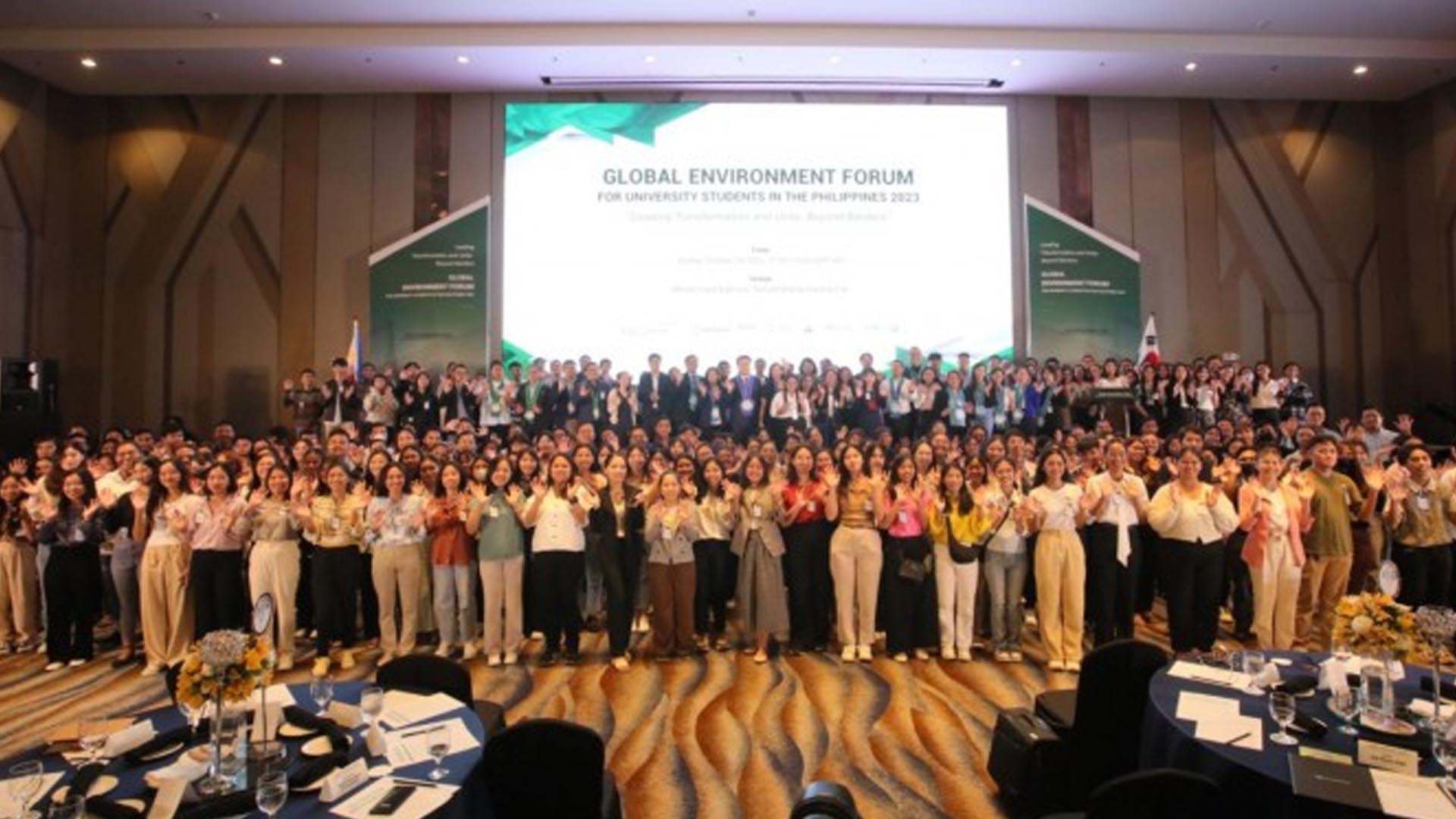Filipino and South Korean university students shared best practices in raising awareness on global environmental issues.
During a global environment forum in Quezon City on Sunday, 300 Filipino students and 500 South Korean students also pledged to do small acts that would help mitigate climate change and other global environmental concerns.
Chelsey Alyanna de Jesus , a Home Economics student from the University of the Philippines, said the forum did not only make her aware of the actual environmental situation the world is currently facing but also inspired her to do something and enjoin other young people like her to act now.
“Resolution or commitment ko na from today, magiging isa akong environment leader na magse set ng example sa mga fellow youth katulad ko, sa pagiging involved sa mga (that starting today, I will become an environment leader who will set an example to my fellow yourth in getting involved with) environmental movement,” she said.
De Jesus said the forum gave her the sense of urgency that something must be done now to sustain the environment for a better future and a better world.
The forum is initiated by Daejayon, an international environmental non-government organization officially registered with the Ministry of Environment in Korea, and supported by the Korea International Cooperation Agency (KOICA), an organization under South Korea’s Foreign Affairs Ministry.
Environment experts from the Philippine academe, as well as from the United Nations Development Programme shared their knowledge to encourage students to act.
Woo Jin Jeong, Tea Tree Club president from South Korea’s Kookmin University, shared online their best practices in schools such as the proper segregation of waste to help sustain the environment.
“If we start from the universities where future leaders are nurtured, the world, which was in the dark due to climate crisis, will no longer be dark,” Woo said.
He also encouraged fellow youth to spread awareness and become multipliers.
Rico Ancog, a professor and dean of the University of the Philippines in Los Baños-School of Environmental Science and Management, said that a good start would be for students to study hard so that they would be better prepared to understand local problems.
“This initiative between Korea and the Philippines is very strategic at least on two fronts, one is, that we see the importance of Korean technology in climate mitigation and climate adaptation, something that can be used in the country. Second, if you think about climate change it really is something about (the) future, and any program or initiatives that would then prepare the youth to think about climate change which is related to the future is a good direction that we must pursue,” he said. (PNA)





















